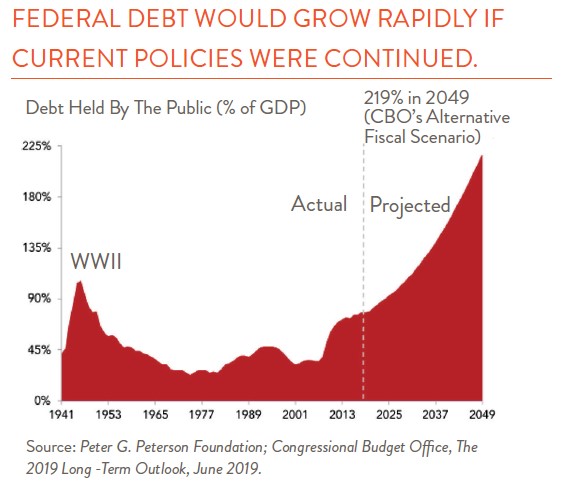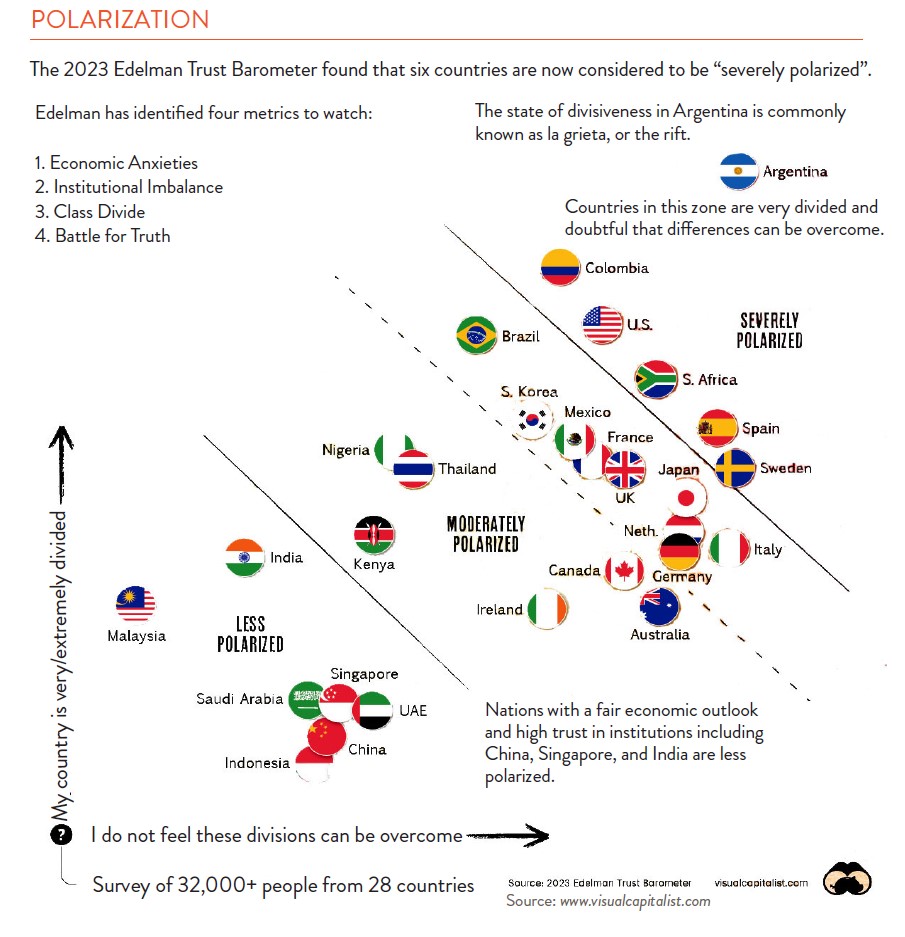The U.S. is running out of money! Well not exactly, but the Treasury has run out of borrowing power based on the current debt ceiling of $34.4 trillion. It is using “extraordinary measures” now to extend the time Congress has to approve an increase in the debt ceiling. If Congress doesn’t act by the middle of the year, then the U.S. government will default on its borrowings. This is something that has never happened before.

I know it is dangerous to say, “this time is different,” but let’s just say this time looks very ominous. First of all, U.S. government debt is growing dramatically. The chart to the right, from the Peterson Foundation, shows our debt is the largest it has been, compared to the U.S. economy, since the second World War. And it is estimated to continue to grow through 2050. The interest on national debt already consumes almost 10% of total federal spending, and this will go up. So, the level of the national debt matters.
A second point is that the U.S. is very polarized today (see chart below). The right wing of the Republican Party agreed to support the election of Kevin McCarthy as Speaker of the House only if he agreed to go to bat to cut federal spending as a quid pro quo to increasing the debt ceiling. With all the politically charged talk in Washington today, push may actually come to shove this time and a default could occur. What this means for the stock market, the economy, and global confidence in the U.S. we can only guess. We are in completely uncharted territory.

Republicans like to paint themselves as the party of limited government and low taxes. Democrats are accused of being for big government, social welfare programs, and additional regulation. The fact is, however, both parties deserve equal blame for our current mismatch of revenues versus spending and the increase in the national debt. Under George W. Bush and Trump, total national debt increased $12.7 trillion, and under Obama and Biden (so far), debt increased $13 trillion.
An interesting question is, “What if the dog actually catches the car this time?” What if Congress forces itself to cut spending? Approximately two-thirds of mandatory federal spending consists of entitlement programs, starting with Social Security, Medicare, and Medicaid. Americans of all persuasions use these programs, and they do not want to see their benefits cut. It’s the classic NIMBY situation: I want to be fiscally responsible, just don’t do it in my backyard.
We will wait to see how this high-stakes game of chicken plays out, but with America as polarized as it is today we could go over the default cliff. Let’s hope not.